Silly things
In the past few months I took some time to evaluate:
- What I do or consume on a regular basis (books, music, games, tv shows, Twitter, etc)
- What really brings me joy
One thing that has been sitting in the back of my head for a long time (not fully examined) is that the content I consume has the power to change my mood and even my interests for a certain period of time - which is one of the reasons why I make a point of reading my quotes and self-advice regularly.
When I started to compare what I do/consume on a regular basis and what brings me joy, I realized that there was a huge discrepancy. One clear example is that violent/dark content (games, movies, tv shows) - which is something I tend to consume a lot - makes me feel sad, anxious, and upset, at least slightly (which in some circumstances is all that it takes to create a bad day); playing some Doom or listening to some heavy metal bands (again, something I enjoyed doing every day) would make me more tense, anxious, and overwhelmed - even if I felt like doing it! Watching some particular episodes of Game of Thrones would make me feel physically sick, even if I was very curious about it.
After experimenting with that, I decided to try the opposite and only consumir chill, silly content… and it works! I started joking around, smiling more, humming to weird songs, and I found out really effective ways to improve my mood and make almost any day a “good day”.
Some things I’ve removed:
- I don’t watch dark/violent/dramatic movies or TV shows. No more The Walking Dead or The Game of Thrones. 13 Reasons Why? Never.
- I don’t play games that make me feel anxious, tense, or overly excited. No more Doom (or most other FPS games), no more fast-paced violent games.
- I don’t read fiction books that makes me feel bad. American Psycho for instance… holy shit, what the flying fuck was the author thinking?
What did I do instead? I started looking back and trying again things that made me feel happy and relaxed in the past… like watching anime, playing Animal Crossing, and listening to goofy happy songs. Some examples per category:
- Games: Animal Crossing, Stardew Valley, Terraria, and Phoenix Wright Trilogy. All silly, (largely) non-violent, and cute. ✨
- Movies and TV shows: I scoured reddit and YouTube for “chill anime” recommendations and found some great ones! I recently finished “Gekkan Shouko Nozaki-kun” and “Mushishi”, and I plan to watch the original Dragon Ball again (before DBZ). I also started Little Witch Academia but I have some mixed feelings about it, not sure I’ll continue.
- For music, I’m super into game soundtracks now. I’ve been listening non-stop to the OSTs from Stardew Valley, VA-11 Hall-A, and The Crypt of the Necrodancer.
- As for books, I’ve removed from my Kindle every book that I “should” read for self-improvement and bought a bunch from my favorite genre: cozy mystery! I’ve been reading a lot of Agatha Christie and Arthur Conan Doyle and I love it. I’m also going through a bunch of comic books and mangas including Calvin & Hobbes and Dr Slump, which are definitely some of my all-time favorites.
As with most of the improvements I achieved recently, this is related to mindfulness and is far from perfect: I still catch myself feeling angry for no reason after doing a long sketch of work while listening to Children of Bodom. As someone said, unconsciously we don’t want what’s best for us, we want what’s familiar, so I need a conscious effort until silly/chill replaces my current “default setting”.
PS: I wrote this on a bus ride without a good way to review or add links. #YOLO.
Control
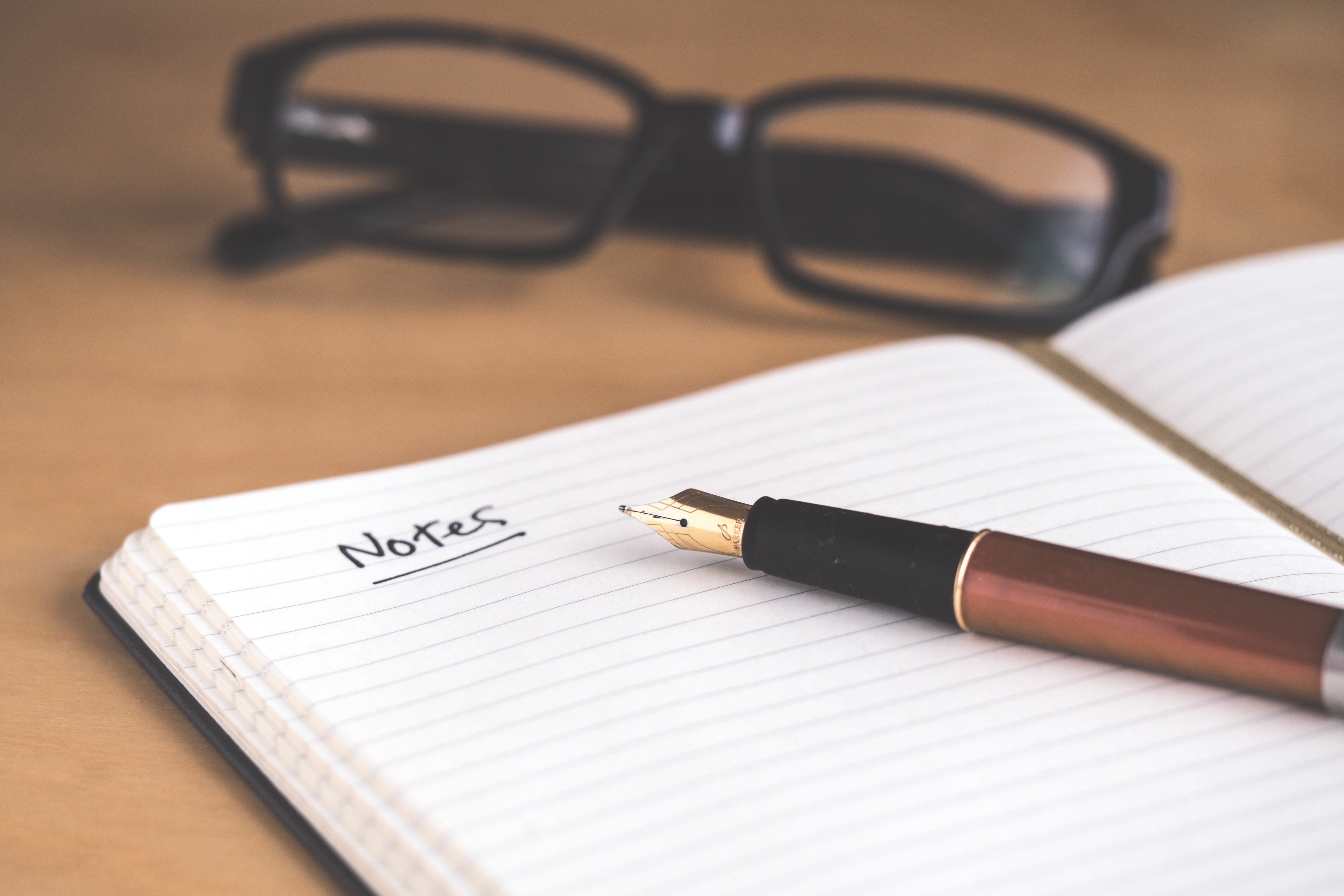 (Photo by David Travis on Unsplash.)
(Photo by David Travis on Unsplash.)
“More money really DOESN’T make you happy; the skill it takes to be happy with more money is the same skill it takes to be happy without it.”
(I know this is from Amy Hoy but I can’t find the tweet anymore)
This quote has been in my mind a lot recently. This is not just money-related; you can easily replace “money” with other types of objects or circumstances and you get the same overall principle: that being happy/at peace/focused/in control is a skill and it’s largely independent from external circumstances.
-–
I burnt out really bad at my job last year, and one of the reasons was that I spent a lot of energy and time trying to be “on top of things” and trying to help with every situation - with incidents, tasks, advice, proofreading postmortems, you name it - even when the work itself was not completely related to my own work. I love helping people out, but to do that and focus on my own tasks I had to routinely work 10-12 hour days, and the stress + long hours + other family health issues ended up burning me out.
With that quote in mind, when I got back I decided to shift this around completely. This involves learning:
- that “I can help if I get involved” is different than “I should get involved”.
- to set hard limits around my working time, doing 8 hours per day.
- that I shouldn’t rush to fix things when I see something broken. It’s OK, most things don’t matter that much.
- that not delegating is largely arrogance-driven, in my case (“if I don’t get involved, X will happen / will not happen and that’s bad!”)
- that’s OK to say “no” more often.
These lessons are still sinking in, but the skill I’m building - how to better control my energy, time, and attention - is extremely valuable and relevant to any scenario. It’s about improving myself and my reaction to events instead of trying to just change my circumstances.
Summer == sleep deprivation
It’s hot and humid here in 🇧🇷 - hot and humid enough for me to have trouble sleeping during the day, and get a jolt of energy when it’s colder (night and really early mornings).
There’s always a good side though: I’ve seen more sunrises in the past two weeks than I did in the entire year before that!
 (Photo by Jake Givens on Unsplash.)
(Photo by Jake Givens on Unsplash.)
Improving my journaling habit
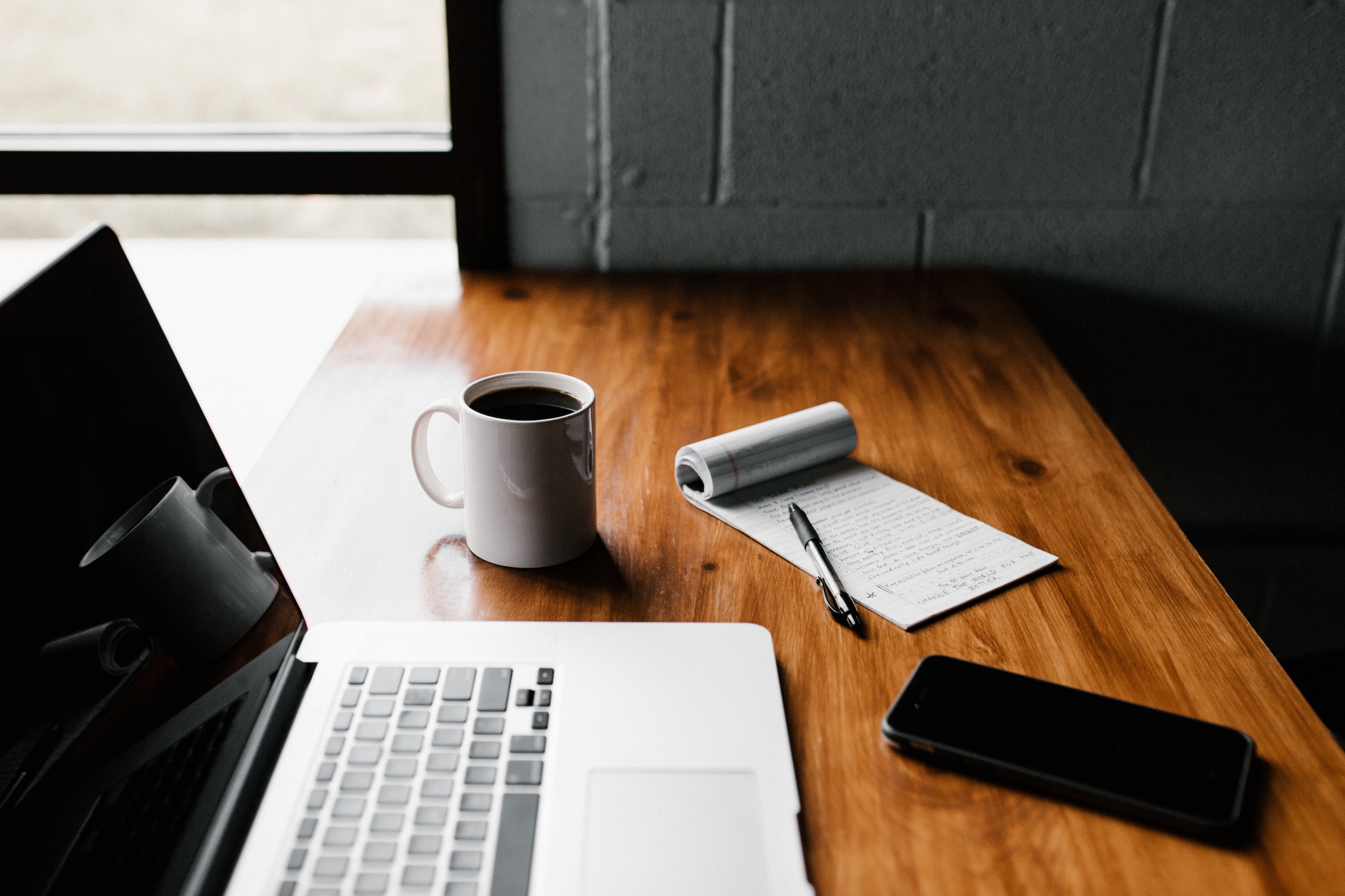 (Photo by Andrew Neel on Unsplash.)
(Photo by Andrew Neel on Unsplash.)
Journaling - writing to clear my thoughts, feel grateful about the good things, understand better the things I fear, and just to collect important memories - is one of my most helpful habits.
Others have written extensively about the benefits of journaling:
- Why Keeping a Daily Journal Could Change Your Life
- Become a Better Person by Keeping a Journal
- How Tim Ferriss Specifically Uses His Journal To Achieve Huge Goals
I have journal entries in different places and formats dating back to 2009, and I’m always amazed at how it improves my thinking and makes me feel better. However, I always face two problems:
- I keep forgetting to write on my journal, even though I always feel better after doing so.
- I often have a hard time knowing where to start writing.
In order to solve these problems (and also have some fun with coding!) I developed a Telegram 🤖 chatbot called Dear Diary that a) reminds me daily and b) has helpful writing prompts to make it easier for me to start writing.
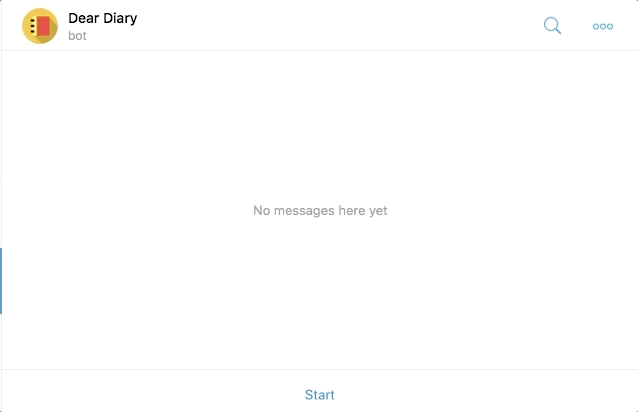
It has been helping me (and a couple of other early users) to keep the habit going, and it’s really fun to use! If you’re interested, click here to learn more and chat with the bot!
Breaking up with Skyrim
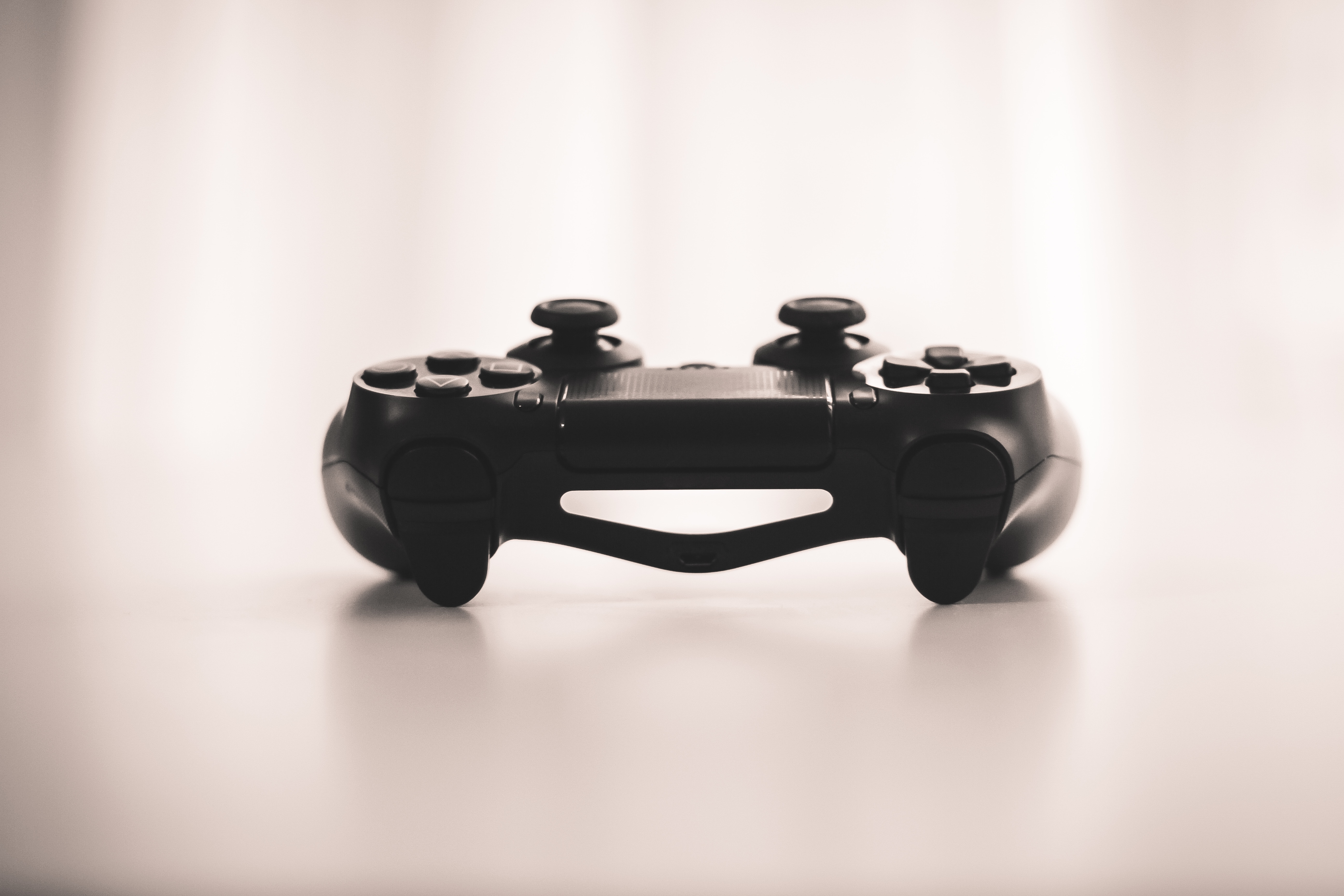 (Photo by Ugur Akdemir on Unsplash.)
(Photo by Ugur Akdemir on Unsplash.)
I started playing Skyrim on the PlayStation 3, many years ago. I absolutely loved it. It was the first really immersive electronic RPG I’ve ever played, far beyond anything else: I could create many different characters, explore the world, and even roleplay in ways I could only do with pen & paper RPGs before.
My PS3 was full of unplayed games, by the way - it was used mostly for Skyrim and Netflix. After I sold my PS3 I bought Skyrim on Steam, and played a little bit there. After Steam, I bought it again on PS4 and played countless hours again. A few weeks ago I bought Skyrim for the fourth time, now on the Switch, and was immediately hooked.
I’m on a break now, and I have 2 rules for myself for the time being:
- I want to be with family as much as possible, and help with the situations we’re in right now.
- I want to enjoy the time by trying as many different things as I can.
Soon after starting my break I realized that I was still playing 1-4 hours of Skyrim per day… but why?
- It’s convenient. It’s there, mobile, on the Switch.
- It’s safe. There are no unknowns, no excitement, no risk.
- It has a reward loop: you take a quest, you do it, you get the rewards… and more quests. It’s an easy - and fake - way to feel productive, useful.
Most importantly, it was actively preventing me from trying new things: new activities, new games, anything that could potentially get me anxious or nervous would immediately be replaced with a “quick” session of Skyrim.
When I caught myself doing this, I realized this could not go on and deleted it.
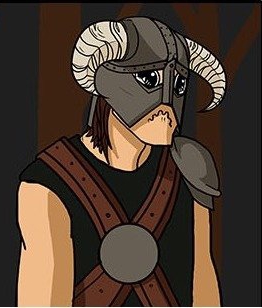
I felt an immediate sense of relief, and decided to move on. Since then, I:
- Deleted all the Kindle books except a new one that I wanted to read (The Sovereign Individual, which I already mentioned on the blog)
- Deleted all my Spotify playlists
- Deleted all my 3DS games except one (a new one, still unplayed)
- Deleted all my Switch games except one (a new one, still unplayed)
- Deleted all my bookmarks
I did this to remove the convenient, the safe, so I can create space for the new, the exciting. Let’s see how that goes!
I love long bus rides
 (Photo by chuttersnap on Unsplash.)
(Photo by chuttersnap on Unsplash.)
Recently I’ve been traveling quite a bit to visit family members; mostly these are short distances, meaning 3-6 hours by bus (each way). I used to travel a lot by bus when I was a kid - up to 16-hour trips to visit my father in São Paulo - but spent most of my adult life traveling by plane.
I really missed this. I love it!
These long bus rides are a good combination of available time + physical space, lack of good internet connectivity, and lack of expectations that just invites me to think. I do a lot of thinking and journaling on these bus rides, and I always end up with great ideas.
In a recent bus ride (from Florianópolis to Curitiba) I wrote almost 10 pages on my journal, planned fun stuff to do for the following two weeks, and made a ton of progress on a Telegram bot I’m working on.
It’s interesting, but I have a really hard time creating the same sort of “thinking environment” when I’m not traveling. Something to research about. 🤔
Resting is part of the job
 (Photo by Toa Heftiba on Unsplash.)
(Photo by Toa Heftiba on Unsplash.)
I’m a team lead and production engineer at Auth0; as such, a large part of my working hours are spent on reactive work, mostly dealing with incidents or unblocking someone from my team. Since we have people from several different timezones on the team and incidents can happen at any time, I have a tendency to work many more hours than what’s advisable. It’s not super rare for me to start at 8am and go until 9pm, eating lunch in front of the computer.
This came up in a few 1:1s I had with my boss, who gave me a really useful piece advice, which was something along these lines:
“Embrace it. If there are no incidents going on and the team doesn’t need your help right now, rest. Go watch a movie, or do some light work you particularly enjoy, but whatever you do, rest and recharge. Problems will happen, and when they do the team will need you to be sharp and decisive. Treat recharging as part of your job.”
As a new team lead, this is extremely important to keep in mind. I still have a hard time implementing it, but it’s getting easier and better the more I learn to prioritize and focus on doing less, better.
"Two good things"
I’ve been going through some rough patches in my life recently, so I’ve been trying out many different things to improve my mood and change how I tackle my days.
A recent favorite has been the “two good things” exercise. It’s very simple: every night my girlfriend and I talk about two good things that happened during the day, and why they were good things. As is the case of many worthwhile practices, this is hard to remember but yields very good results overall.
It’s very easy to focus on what’s bad or needs to improve (at least for me) so this helps me stay aware of the positive things that happen on a daily basis, no matter how small they might look like at first.
PS: I took this from a book or blog somewhere, but I don’t remember and can’t find where. 😶
5-Bullet Friday - Dec 15th, 2017
More than a little bit inspired by Tim Ferriss’ 5-Bullet Friday newsletter, I’ll post here five interesting things I’ve found (or revisited) in the past week.
- Nomad List 3.0 is a great resource to find a good place to travel to and work or play. Following the development and launch was really interesting and a huge inspiration.
- This list of Battery Life Hacks has been helping me go through the day with my overloaded iPhone 6.
- Franz is a recent favorite in the Mac app category; I’ve been using it to open WhatsApp, Facebook Messenger, Slack, and a bunch of other messaging apps into a single place. I only use the Telegram native app separately (which is always open, which is not the case for Franz).
- The Sovereign Individual is a mind-blowing, almost prophetic book published before the year 2000 that talks about remote work, cryptocurrencies, digital nomads, social networks, mobile internet, and much more. Its thesis has been described here as well.
- Thought Unfinished is one of my favorite Twitter accounts, with many interesting insights and… well, unfinished thoughts.
Adventures in Burnout: One Physician’s Story
Great blog post by The Happy Philosopher:
I’ve noticed that certain people seem especially susceptible, those that are perfectionist, those who like to be in control and take ownership, and those that are most responsive to criticism or praise. (…) Over the course of my own professional life, with the usual trappings of a successful career arc in medicine, the claws of burnout took hold. I was a go-to guy, “The Man”, and I owned the role, but that did not mean that I was never wrong, never made a mistake, or never had a regrettable interaction with a patient or colleague. These were fortunately rare, but the personal damage nonetheless accumulated over time, an ever increasing load of unwanted emotional baggage.
Read it in full here.